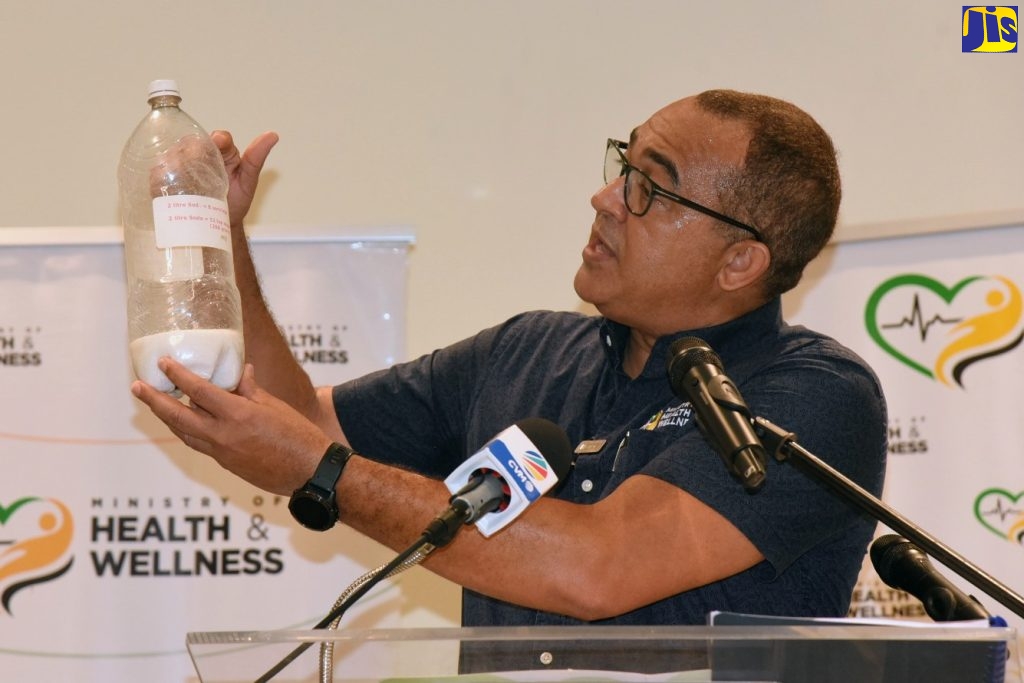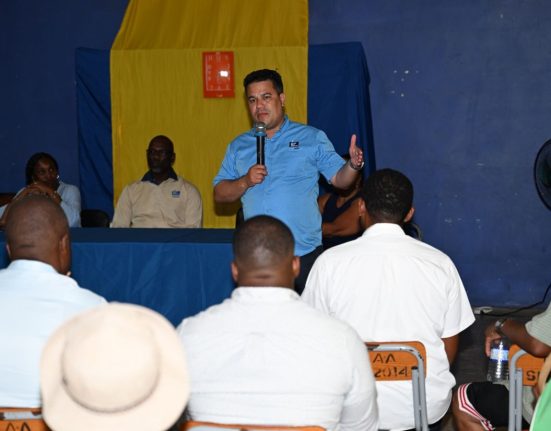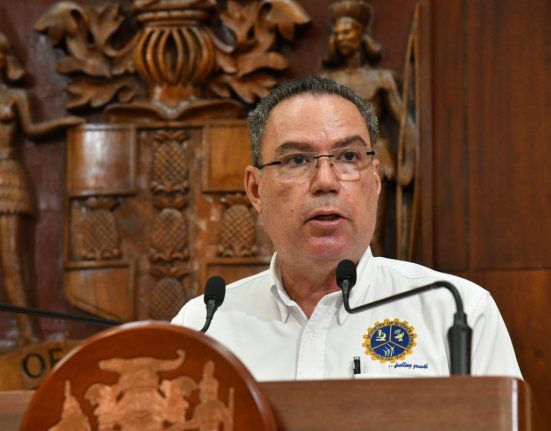
Minister of Health and Wellness, Dr Christopher Tufton, is imploring school leaders to follow the Interim Guidelines for Beverages in Schools.
The guidelines serve to reduce students’ exposure to and consumption of sugar-sweetened beverages, including fruit drinks, energy drinks and sweetened water.
Effective January 1, 2019, the guidelines prohibited sugar-sweetened beverages with a total sugar concentration exceeding a maximum of six grams of sugar per 100 millilitres (ml), from being sold or served in schools.
This was reduced to a maximum of five grams per 100 ml, effective January 1, 2020; and to a maximum of four grams per 100 ml, effective January 1, 2021.
Come January 2023, the limit will move to a maximum of 2.5 grams of sugar per 100 ml.
The objective is to improve the dietary intake of children and also reduce the burden of non-communicable diseases (NCDs), which account for 78 per cent of deaths in Jamaica each year.
Evidence shows a strong link between sugar-sweetened beverage consumption and childhood obesity and the development of NCDs in later years, which requires an urgent response.
The minister, who spoke at a recent press briefing at the Jamaica Pegasus Hotel in New Kingston, said that some schools are not adhering to the guidelines.
Citing a recent Youth Risk and Resiliency Behaviour Survey, which indicated that 68 per cent of Jamaican students, ages 13-15, were identified as consuming one or more carbonated or sweetened drinks, two or more times per day, he said that school leadership must do more to ensure that students can access healthier beverage choices.
He said further that data assessed by the Ministry’s National Food Industry Taskforce, following inspection of 35 schools in April, found that the more popular drinks on sale, were not in conformity with the guidelines.
“It is important that we respond to this, because sugar is addictive, and our young people will become addicted, and they will continue, as part of their lifestyle to consume this excessive sugar, which ultimately, will lead to health issues later on in life,” Tufton pointed out.
He said that stricter monitoring of drinks sold at school will be done, while stressing that “the time is now” to intervene and provide children with the guidance and support “so that they can live a wholesome life and become the productive adults that we all desire them to be”.
Meanwhile, Education and Youth Minister, Fayval Williams, who also addressed the session, reported that over 600 principals, senior teachers, school nurses, physical education teachers, health and family life teachers, cultural agents, and guidance counsellors have been sensitised on an institutional plan for schools.
This is geared at promoting healthy consumption choices and physical activity among students.
“We are again appealing to all stakeholders to follow the guidelines in the interest of their own good health and that of the children,” the minister appealed.




